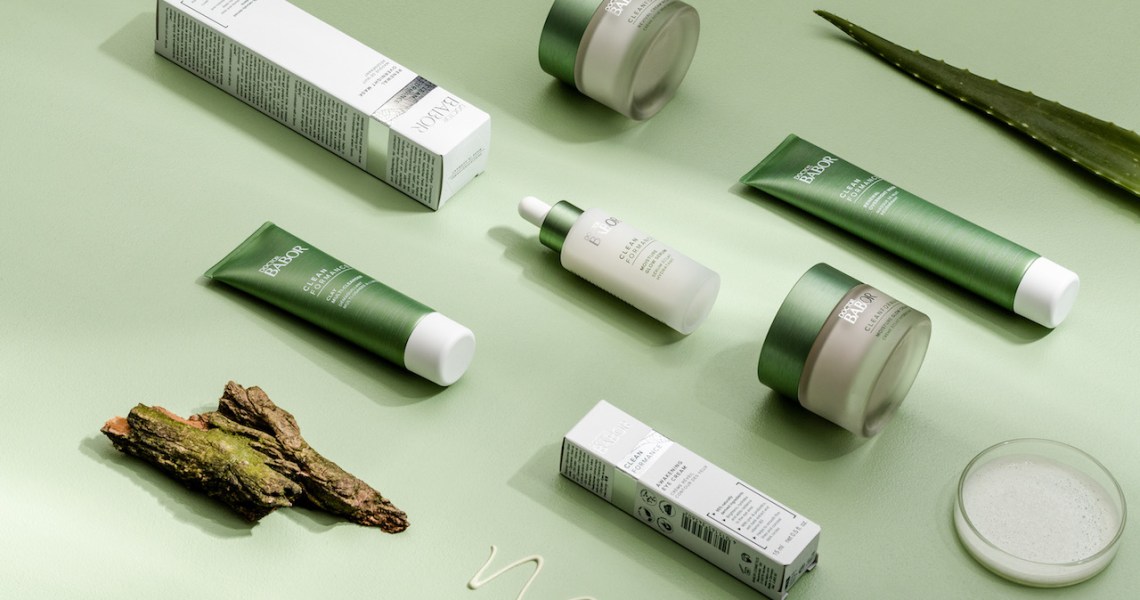“Cosmeceutical” and “scientific” are some of the words that come to mind when thinking of German skin-care brands like Dr. Barbara Sturm and Augustinus Bader. But with the rise of wellness, the G-beauty world is increasingly getting on board with the concepts of “clean,” “natural” and “plant-based” marketing.
German skin-care brand Babor, for example, launched its Cleanformance line globally in July 2020 following Central Europe in May, with an emphasis on plant-based, sustainably sourced natural ingredients. These include red maple bark extract, CBD isolate, prebiotics and probiotics found in a nine-product collection of cleansers, serums, an eye cream, moisturizers and an overnight mask. The new launch comes at a time when “clean,” “natural” and “clinical” are driving beauty sales. NPD Group attributed 70% of U.S. prestige skin-care sales growth to natural brands in the first half of 2019, while close to half of prestige skin-care brands use clinical ingredients. In addition, the number of clinical brands making claims about clean ingredients doubled last year.
“When consumers think about German products, they think about engineering; they think about quality,” said Ben Simpson, Babor Americas svp of marketing. “When you think about German skin care, you often do think cosmeceutical.”
According to Simpson, the combination of German cosmeceutical branding with clean and natural will be a plus for the 64-year-old brand. “We really noticed in the clean, natural space, there wasn’t really an element of performance. We felt like we could bring something that wasn’t already there, and that was a clean, cosmeceutical, high-performance, natural brand.”
Marketing imagery and language highlight Babor’s new emphasis on clean and natural, with the brand’s site and social media showing photos of plants and descriptions of the beneficial properties of red maple bark. The brand also highlights that the products are 100% vegan, with no silicones, microplastics, parabens, phthalates, sulfates, gluten, mineral oil, synthetic fragrances, PEG, GMOs or talc.
Since launching, the collection has become the second most popular on the brand’s DTC site. During the pandemic, DTC e-commerce has made up 39% of the brand’s sales.
Babor is not the first cosmeceutical German beauty brand to adopt this duality in its messaging. Dr. Hauschka also heavily emphasizes organic and plant-based ingredients, with an ingredients page on its site explaining that all products are certified natural. And cult brand Dr. Barbara Sturm intersperses its Instagram feed with photos featuring aloe plants and green juice to appeal to the wellness set. It is also merchandised within “Clean at Sephora.”
Ad position: web_incontent_pos1
“Naturals are a huge thing for Germans,” said Simpson. Germany remains the brand’s largest single market, with a 40% share of its total sales.
This branding can especially help German beauty brands reach a younger consumer. According to a 2018 survey by AlixPartners, “natural” ingredients were the most important attribute in beauty and personal care products for global consumers ages 18-34.
“Research has certainly shown that millennials and Gen Z, as well as the beauty consumer [in general] right now, are certainly interested in probiotics,” said Simpson.
The collection is currently available on Babor’s DTC site as well as at hotel and spa partners. On the brand’s DTC site, it has launched special initiatives during Covid-19 for its North America and Europe spa partners that had to close their doors. In order to drive foot traffic when they reopen, the brand is promoting an affiliate program for the partners and offered vouchers for spas in the U.S. with DTC site purchases.
“We’ve been quite fortunate to ride the G-beauty wave,” said Simpson. “I don’t see it going away, I don’t really see it fading,” he said.




